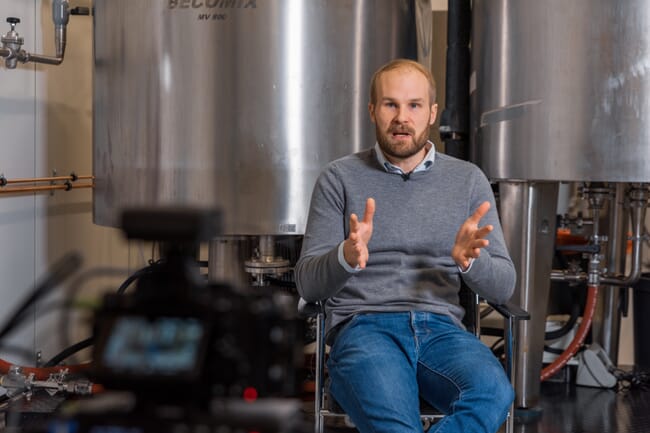
© Enifer
The factory, which is set for completion by the end of 2025 and projected to cost €33 million, will convert food industry side streams into Enifer’s sustainable Pekilo fungi-based protein ingredients. It will be the world's first commercial plant to produce such a mycoprotein ingredient from sidestream raw materials.
The factory will produce up to 3,000 tonnes of Pekilo a year, which is enough to cover the annual protein needs of approximately 40,000 people. The production of Pekilo mycoprotein has a low carbon footprint and requires minimal land and water, making it a very sustainable alternative to animal and plant proteins.
The new funding package comprises a new €15 million Series B equity funding round led by the Finnish private equity fund Taaleri Bioindustry Fund I, with follow-on investments from existing shareholders Nordic Foodtech VC, Voima Ventures and Valio. This funding is complemented by the Finnish Climate Fund, which has extended a €7 million junior loan to support the project and a €2 million climate and environmental loan provided by Finnvera. This funding comes on top of the previously reported €12 million recycling and reuse investment grant from Business Finland, making the factory fully funded.
“We are very happy to start cooperation with Enifer. We believe that there is an increased need for alternative proteins as the global population grows. Demand is also supported globally by environmental and ethical considerations. Taaleri Bioindustry Fund I’s investment enables commercial scale production. We are confident in Enifer’s opportunities to expand,” commented Tero Saarno, managing director of Taaleri Bioindustry, in a press release.
"The world's population and the need for protein are growing. Food production is – even at the level of technologies that can already be scaled – an unsolved key part of the climate challenge. In the future, sustainable food production will be based on several different solutions and the demand for new types of proteins is predicted to grow significantly over the next decade. Enifer's already tested technology is interesting as the nutrients of various side streams can be upcycled and their processing value increased instead of energy use,” added the Finnish Climate Fund's acting CEO, Toni Mikkonen.
The factory will begin ramping up operations in 2026 and, once at full capacity, will produce 500 kg of mycoprotein per hour.
How it works
Pekilo mycoprotein is produced by cultivating a specific species of fungus in a fermentation process that is similar to brewing beer or making soy sauce. The powder contains high-quality protein and fibre. It is also neutral in colour and taste, making it an excellent source of nutrition in the most diverse food and feed applications. Enifer and its partners have already demonstrated its use across meat and dairy alternatives, baking, pastries and snacks.
At its core, the factory will harbour a full-sized industrial fermenter, in which the mycoprotein is grown. The factory will directly employ some 15 people during regular operations and more than twice this number during construction and commissioning.


